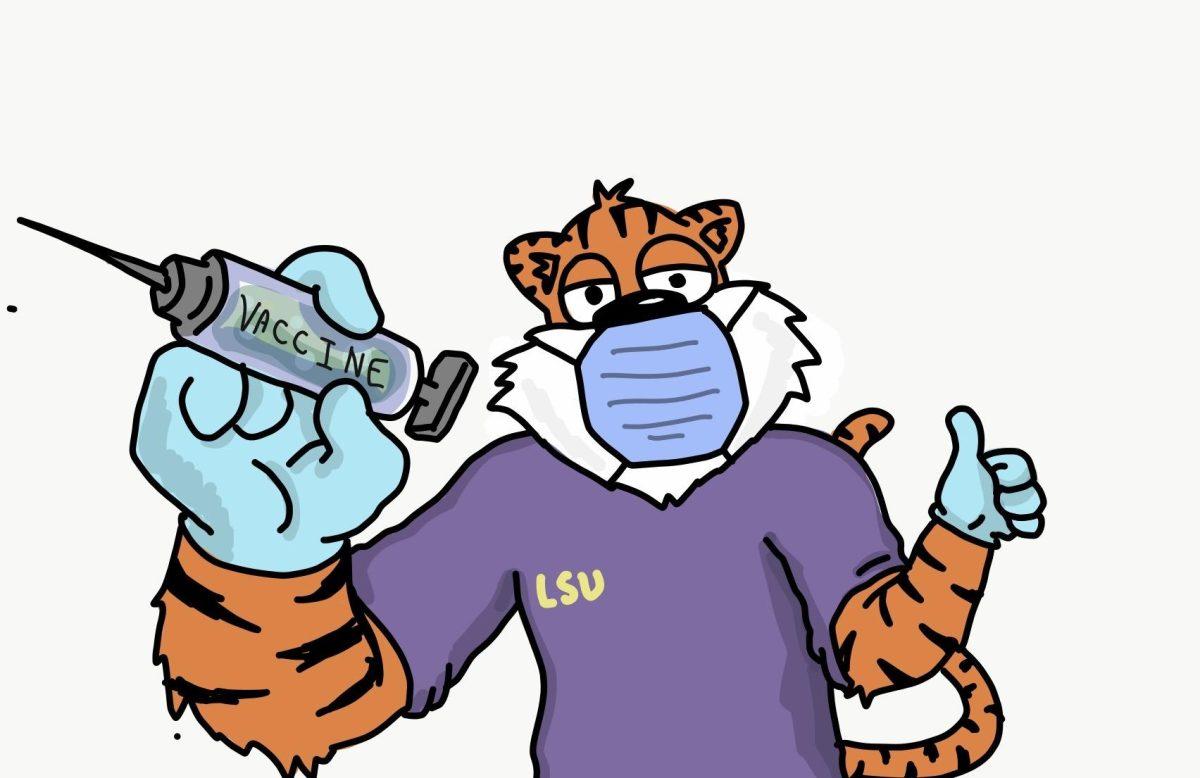In a Jan. 15 email, the University informed students it had received “a small number of initial doses” of the COVID-19 vaccine and had begun administering these doses to the most at-risk populations on campus.
Four days later, the administration released a pre-registration survey to assess the level of interest among students and faculty members in receiving the vaccine. According to WBRZ, 7,000 people — including myself — participated in the survey in the first 24 hours.
Besides these two official communications, the University has released little information about its vaccine rollout plan. It plans to follow the Louisiana Department of Health’s guidelines of prioritizing those in phases 1A and 1B, which includes hospital personnel and the elderly, but I wonder: once these groups are vaccinated, how will the rest of campus follow?
Will the middle-aged take precedence over young adults? Will living in on-campus housing with a roommate or suitemates mean receiving priority over students living off campus? Will medical conditions or past COVID-19 diagnoses be taken into account?
The lack of transparency disturbs me for one simple reason: it invites the possibility that some people will be prioritized for vaccination solely on their status.
Ideally, the Facility Services and Dining Services staff, who are essential workers in daily contact with thousands of students, will be prioritized first, followed closely by any students with respiratory problems who live in on-campus housing and go to live classes. These populations — unlike some faculty members or University bureaucrats who can work from home — are constrained to the super-spreading environment of a college campus.
Unfortunately, I doubt this is truly how the University will administer its vaccines, as it has already made abundantly clear that some students are considered more equal than others. From the infamous sleeping pods in the $28 million football locker rooms to the Title IX cover-ups exposed in fall 2020, the University has a long history of giving preferential treatment to its prized student athletes, even at the detriment of other students.
I know that as a healthy 20-year-old with no pre-existing medical conditions, I will be at the very bottom of any vaccination priority list. And I’m perfectly fine with waiting my turn… as long as the people before me receive their vaccines for valid reasons, like risk exposure, essential worker status and medical need.
I am not, however, so willing to wait patiently if the University exhausts its vaccine supply first on football players, Greek Life or anyone else deemed somehow superior to the rest of the student body, especially since these groups are responsible for some of the biggest COVID-19 outbreaks on campus, including one notorious Halloween party.
Until the University releases further clarification on how the vaccine rollout will occur, I will remain skeptical about the equity of its plan. This pandemic has already exposed how deeply unequal our societal resources are divided — I just hope our school doesn’t perpetuate this disparity.
Cécile Girard is a 20-year-old psychology junior from Lake Charles.








